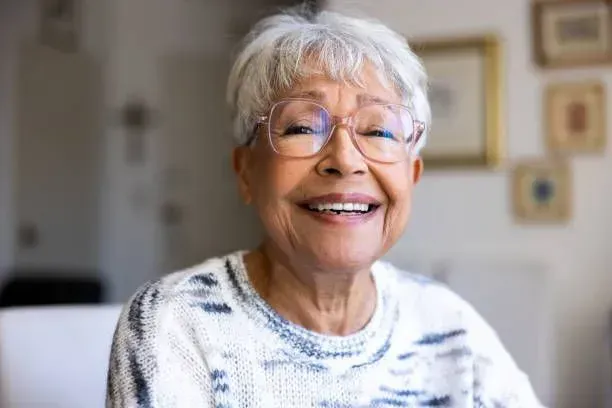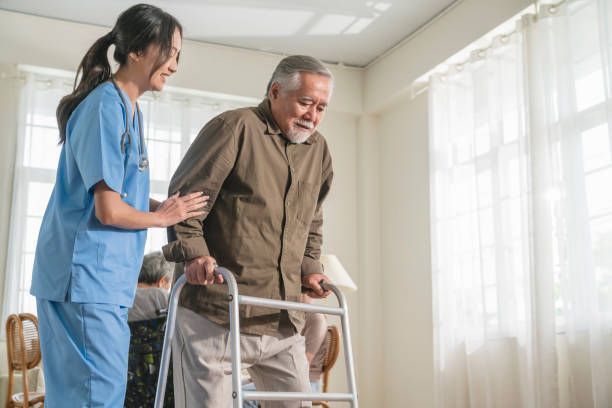6 Signs a Love One with Dementia Should No Longer Be Left Alone

In the intricate tapestry of caregiving, recognizing the delicate balance between independence and safety becomes particularly crucial when caring for a loved one with Alzheimer's and dementia. As we navigate the challenging journey of supporting individuals with cognitive decline, there comes a pivotal moment when the question of leaving them alone arises. The equipoise between fostering autonomy and ensuring their well-being demands careful consideration. In this article, we delve into the subtle cues and poignant indicators that signal the time when it is no longer safe to leave a cherished family member with dementia alone. By understanding these signs, we empower caregivers with the knowledge needed to make informed decisions, fostering an environment that prioritizes both dignity and security in the face of cognitive challenges.
6 Signs a Dementia Patient Should Not Be Left Alone:
- Indeed, one of the paramount indicators that a loved one with dementia should not be left alone revolves around their ability to perform basic activities of daily living (ADLs) independently. When an individual encounters challenges with tasks integral to self-care, such as bathing, dressing, eating, and toileting, it serves as a resounding signal that their cognitive decline has reached a point where unsupervised moments can pose significant risks. These activities, essential for maintaining personal hygiene and overall well-being, demand a level of cognitive functioning that may be compromised in individuals with dementia. As such, caregivers should be attuned to any signs of struggle or confusion during these activities, recognizing them as compelling reasons to ensure constant supervision for the safety and dignity of their loved one.
- Another critical factor indicating that a loved one with dementia should not be left alone is the manifestation of forgetfulness and confusion, particularly concerning their surroundings or the execution of simple tasks. The progressive nature of dementia often leads to memory lapses and cognitive challenges, making routine activities more complex. If a person with dementia exhibits frequent forgetfulness about their environment or struggles with tasks that were once routine and automatic, leaving them alone becomes a potential hazard. Disorientation and confusion may result in wandering, accidental injuries, or an inability to respond appropriately to emergencies. Recognizing these signs underscores the importance of constant supervision, ensuring the safety and well-being of the individual with dementia and offering reassurance in moments of uncertainty.
- An additional imperative consideration in determining whether a loved one with dementia should be left alone revolves around the risk of wandering or getting lost. Wandering is a common and potentially dangerous behavior associated with dementia, as individuals may become disoriented, forget their way home, or lose awareness of their surroundings. This propensity for wandering not only heightens the risk of physical harm but also exposes them to environmental challenges that can exacerbate their cognitive distress. Recognizing signs of restlessness, attempts to leave without a clear purpose, or a history of wandering episodes becomes paramount. To safeguard against the perils of wandering, continuous supervision and proactive measures, such as installing door alarms or utilizing identification methods, become essential components in the compassionate care of individuals with dementia. By addressing the risk of wandering, caregivers can create a secure environment that promotes both autonomy and safety for their loved ones.
- Yet another crucial consideration in determining the appropriateness of leaving a loved one with dementia alone is their ability to communicate and understand others effectively. The cognitive decline associated with dementia often extends to difficulties in verbal expression, comprehension, and overall communication skills. When an individual with dementia experiences challenges in conveying their needs, understanding instructions, or engaging in meaningful dialogue, leaving them unattended poses considerable risks. Miscommunication can lead to misunderstandings, frustration, and potentially unsafe situations. Caregivers should be attuned to signs of deteriorating communication abilities, such as repetitive speech, difficulty finding words, or a diminished capacity to follow conversations. By recognizing these challenges, caregivers can ensure a supportive and secure environment, mitigating the risks associated with isolation and fostering improved overall well-being for their loved ones with dementia.
- Certainly, a crucial consideration in determining whether a loved one with dementia should be left alone involves evaluating their behavioral patterns, specifically looking for signs of agitation, aggression, or disinhibition. Behavioral problems are common manifestations of dementia and can pose significant challenges in unsupervised situations. Individuals with dementia may exhibit sudden mood changes, restlessness, or even aggressive behaviors, which can escalate in the absence of supervision. Leaving someone with dementia alone when they are prone to these behavioral issues not only compromises their safety but also increases the likelihood of accidents or confrontations. Caregivers should be vigilant in recognizing and addressing behavioral challenges, seeking professional guidance and implementing strategies to manage and minimize these issues. Ensuring a safe and secure environment becomes paramount to protect both the individual with dementia and those around them from potential harm.
- Undoubtedly, one of the most critical considerations when deciding whether a loved one with dementia should be left alone is the assessment of any risk they may pose to themselves or others. Dementia can lead to changes in behavior, impaired judgment, and a diminished awareness of danger, heightening the potential for accidental injuries or harm. Individuals with dementia may inadvertently put themselves at risk by forgetting safety precautions or engaging in activities that could lead to accidents. Moreover, there is a concern about the possibility of unintentional harm to others due to misunderstandings, confusion, or behavioral changes. The safety of both the individual with dementia and those in their vicinity is paramount. Caregivers should be vigilant for signs of self-harm or any behaviors that could jeopardize the well-being of others. In such cases, constant supervision and the implementation of safety measures are crucial to prevent accidents and ensure the overall safety and welfare of everyone involved. Seeking professional advice and support can also provide valuable insights into managing and mitigating potential risks associated with dementia-related behaviors.
In general, it is not safe to leave a dementia patient alone for even short periods of time once they enter what is often recognized as the moderate stage of dementia. This is because they may no longer have the judgment or ability to handle any number of emergencies, such as a fire or a fall.
Here are some very specific examples of situations when a loved one with dementia should not be left
alone:
- If they are cooking or using the stove.
- If they are bathing or showering.
- If they are taking medication.
- If they are using stairs or other potentially dangerous areas of the home.
- If they are around other people who may be at risk of being harmed, such as children or pets.
If you are caring for an individual with dementia, it is important to develop a plan for their safety. This may involve arranging for respite care, hiring a caregiver, or moving the patient into a long-term care facility.
Here are some tips for keeping a dementia patient safe:
- Make sure their home is safe and free of hazards.
- Remove any dangerous objects, such as knives, firearms, and poisonous substances.
- Install locks on all doors and windows.
- Consider using a GPS tracking device to help keep track of the patient's whereabouts.
- Create a routine for the patient and stick to it as much as possible.
- Be patient and understanding. Remember that the patient is not doing this on purpose.
If you have any concerns about the safety of a dementia patient, please consult with their doctor or a caregiving specialist. With its team of highly trained and experienced Home Health Aides, 7 Day Home Care offers specialized Alzheimer's and dementia care in Manhattan, Queens, Brooklyn, Nassau County, and Suffolk County in New York. Providing such specialized care is crucial, given the unique needs and challenges that individuals with Alzheimer's and dementia face. The presence of well-trained and experienced Home Health Aides ensures that individuals with Alzheimer's and dementia receive the personalized attention and support necessary for their well-being. This commitment to specialized care contributes significantly to enhancing the quality of life for those affected by cognitive conditions and offers peace of mind for their families. Call 7 Day Home Care today at 516-408-0034 to learn more about our in-home alzheimer's and dementia care services.
Brian Callahan
7 Day Home Care


Living With Parkinson’s Disease: How In-Home Care Helps Seniors Stay Safe, Independent & Comfortable








